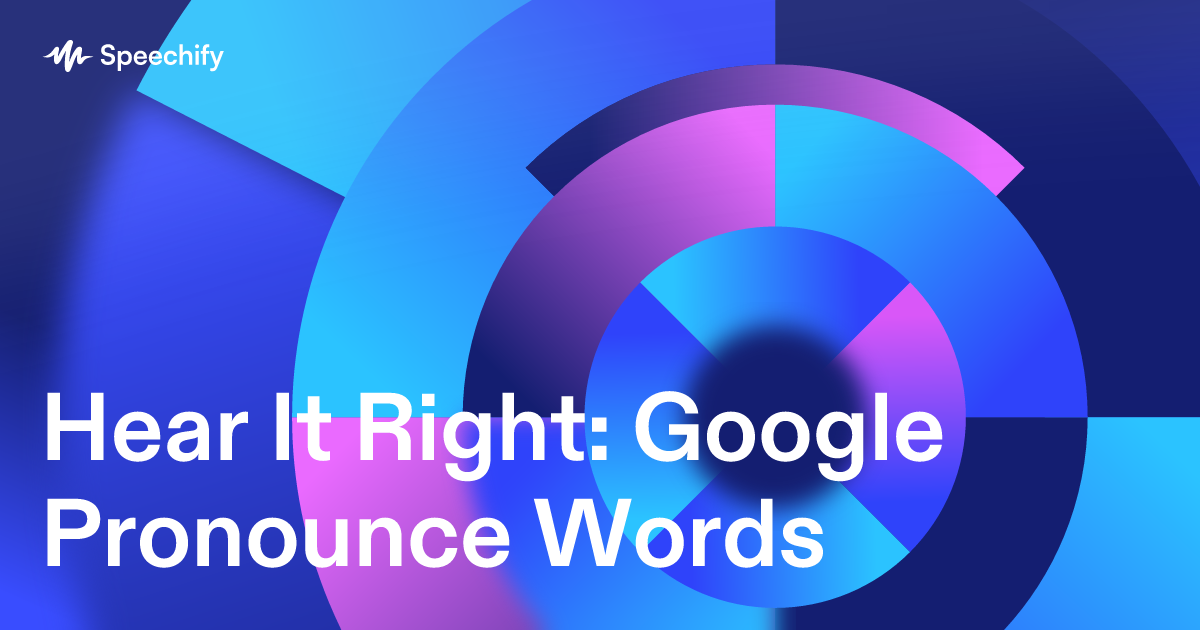Hey there! If you're like me, you’ve probably found yourself struggling to pronounce certain words in English. With so many different languages and accents, getting the pronunciation just right can be a challenge. But don't worry, Google has got our backs with a fantastic feature: Google pronounce words audio.

Using Google to Improve Your Pronunciation
First things first, if you want to learn the correct pronunciation of a word, simply head over to Google Search. Just type in the word followed by “pronunciation,” and Google will provide an audio clip of the word being spoken. This is incredibly helpful for English learners who are trying to improve their English skills. It’s also useful for native speakers of other languages like French, Spanish, German, Chinese, Japanese, and many more.
The Beauty of Phonetic Transcription
Google not only gives you the audio pronunciation but also provides the phonetic transcription. This helps in understanding the sounds of the word more accurately. For example, if you type “pronunciation of a word” in Google Search, you’ll get both the audio pronunciation and the phonetic spelling. This is super handy for those of us who are visual learners.
Enhancing Language Learning with Google
Learning a new language? Google’s pronunciation feature can be a game-changer. Whether you’re learning American English, British English, or even languages like Russian, Korean, Arabic, Ukrainian, Portuguese, Italian, Turkish, Swedish, Danish, Norwegian, Czech, Hindi, or Polish, you can use this tool to hear how native speakers pronounce words. This can significantly improve your language learning process.
Google Translate and Pronunciation
Another fantastic tool is translate.google.com. When you translate a word or phrase, you can also listen to the pronunciation in different languages. This is especially helpful when you're learning multiple languages at once and need to hear the differences in pronunciation.
Chrome Extensions for Pronunciation
If you’re using Google Chrome, there are several extensions available that can help with pronunciation. Some extensions can read entire paragraphs out loud, which is great for improving your listening skills. Additionally, these tools can help you get accustomed to various accents, be it American English or British pronunciation.
Apps for Improving Pronunciation
There are numerous apps available that focus on English pronunciation and other languages. For instance, ChatGPT and Microsoft have apps that can assist with pronunciation practice. These apps are designed to help you speak English more fluently by providing you with instant feedback.
Practical Tips for Better Pronunciation
- Listen and Repeat: Use Google’s audio pronunciation feature to listen to words and then repeat them. This helps in mimicking the accent and intonation of native speakers.
- Record Yourself: Record your pronunciation and compare it with the Google audio. This helps in identifying areas that need improvement.
- Practice with Native Speakers: If possible, practice speaking with native speakers. This can be done through language exchange apps or online communities.
- Use Phonetic Guides: Learn the phonetic symbols and sounds of the language you’re learning. This will make it easier to understand and produce the correct sounds.
- Consistent Practice: Make it a habit to practice pronunciation daily. Consistency is key to improvement.
Improving your pronunciation is a crucial part of mastering a new language. With tools like Google’s audio pronunciation feature, translate.google.com, and various apps, you have a wealth of resources at your disposal. Whether you’re aiming to perfect your American English or any other language, consistent practice and the right tools will help you achieve your goals. So next time you’re unsure about how to pronounce a word, just Google it!
Learn Pronunciation with Text To Speech
Text to speech apps are invaluable tools for learning and mastering pronunciation in a new language. These apps convert written text into spoken words, providing an auditory model for language learners. To use a TTS app effectively for pronunciation practice, start by selecting an app that offers realistic, natural-sounding AI voices in your target language, such as Speechify. Input words, phrases, or texts into the app, and listen closely to the pronunciation, paying special attention to the accent and intonation used.
Try Speechify To Level Up Pronunciation
Speechify AI Voice Generator is a powerful tool for language learners seeking to improve their pronunciation. This text to speech app transforms written text into spoken audio, providing learners with access to high-quality, natural-sounding AI voices in various languages. By listening to how words and sentences are pronounced by these virtual voices, users can emulate the accent and intonation, enhancing their spoken language skills. Speechify also offers features like adjustable speech speeds, which allow learners to slow down the audio, making it easier to hear and repeat each sound accurately. This capability is especially beneficial for mastering difficult pronunciations and understanding the rhythm and flow of the language. By integrating Speechify into their study routine, language learners can achieve better pronunciation and greater confidence in their ability to communicate.





